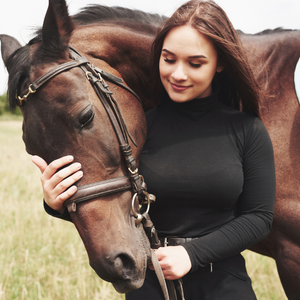Did you recently bring home a rescue dog who is skittish around strangers? Is your horse exhibiting troubling behavioral changes? Does your parrot resist training? If you’ve ever experienced anything like these, or similar, and thought to yourself, “I wish I could tell what my pets are thinking,” you may benefit from working with an animal communicator.
We communicate with our pets every day, using verbal commands or praise, physical gestures, and touch. But we still might yearn for a deeper understanding, whether it’s due to a behavioral or health concern, or simply because we desire a more meaningful connection.
Animals are complicated creatures! While they don’t have verbal language, they do communicate with other animals and with humans. You need only to observe your dog, chicken, or cow’s body language to understand they most definitely experience emotions such as joy, fear, and grief. And there is plenty of scientific research that bears this out!
Animal communication helps us better understand the health and behavior of our pets. It is an excellent complement to the actions you are already doing to take care of your beloved pet. Used in tandem with training and veterinary medicine, this valuable tool can help you see your pet’s point of view and clarify assumptions that we make as humans about our animals — which may (or may not) be accurate!
To understand how an animal communicator assists their clients and their pets, it is helpful to understand exactly what an animal communicator is and what they do.
What is an animal communicator and who works with them?
An animal communicator connects you and the animals you love through telepathic communication. Anyone who owns an animal, or is a professional animal caretaker, such as vet techs, animal rescue workers, dog trainers, and zookeepers, can benefit from working with animal communicators.
How does telepathic animal communication work?
Animal communicators act as translators between nonverbal animals and verbal humans. All thought is electrical or energetic signals. Scientists have learned that they can measure human brain waves even while we are not speaking because they can see those waves moving and changing as you imagine words and pictures, creating an electronic signature.
A useful analogy for telepathic animal communication is to think of TV or radio broadcasts that use transmitters and a receiver. Invisible signals pass through the air as digital information. Most of the time, we are oblivious to them because we are not tuned in to that channel, but they are always there.
Animal and human brains function similarly. To communicate telepathically with animals, animal communicators intentionally “tune in” to the frequency or broadcast of a particular animal, just as if they had tuned in to a specific channel.
This allows the animal communication professional to hear or see the animal’s personal “broadcast” which they can experience as thoughts, feelings, and images. They may receive visual imagery, physical sensations, or emotions from the animal and can even feel their fear or joy as if they are experiencing it for themselves. They then act as a translator between you and your animals, translating your animal’s nonverbal communication so that they can be better understood.
Want to know more? Ask!
I am an expert in telepathic animal communication. Our animals are part of our families. Therefore, we want them to be happy and yearn for a deeper understanding of them. Chances are, your animals probably already have the answers you need and are eager to share. They just don’t have the words! As the voice that speaks for your pets, I can help.
Want to learn more? Check out our FAQs. Do you still have additional questions? Ask Me!



